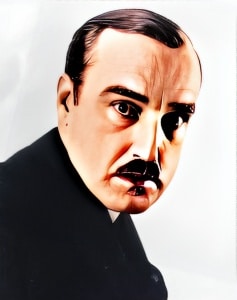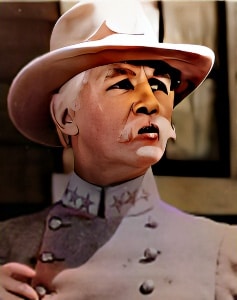 Robert McKim (1878-1934) was an American actor known for his extensive and versatile career in both silent and sound films.
Robert McKim (1878-1934) was an American actor known for his extensive and versatile career in both silent and sound films.
Born on February 5, 1878, in New York City, he became a prominent figure in the early years of American cinema, leaving a lasting impact on the entertainment industry.
McKim’s early life and entry into the performing arts are less documented, but he displayed a natural aptitude for acting and quickly pursued a career in the theater. His early experiences on the theatrical stage provided a strong foundation for his future success as an actor in the emerging world of cinema.
As silent films gained popularity in the early 20th century, Robert McKim transitioned to the new medium. His expressive face and ability to convey emotions effectively made him a sought-after talent in the emerging film industry. He quickly gained recognition for his acting talent and his ability to embody a wide range of characters.
One of his notable roles was in the 1916 silent film “The Return of Draw Egan,” directed by William S. Hart. In this iconic Western film, McKim played the antagonist, Red Pierre, adding depth to the film’s narrative. His performance showcased his ability to contribute to significant works in the silent film era.
As the film industry transitioned to sound in the late 1920s and early 1930s, McKim continued to thrive as an actor. His distinctive voice and dynamic performances made the transition to sound films seamless. He demonstrated his versatility by taking on various roles in a wide range of genres.
One of his memorable sound film roles was in the 1930 pre-Code horror film “The Bat Whispers,” directed by Roland West. In the film, McKim portrayed the character of Richard Fleming. His performance added depth to the character and contributed to the film’s eerie and suspenseful atmosphere.
Robert McKim’s career continued to flourish as he worked with notable actors and directors of his time. He shared the screen with legendary figures like Lillian Gish, John Barrymore, and Greta Garbo, demonstrating his ability to hold his own alongside Hollywood’s brightest stars.
In addition to his contributions to film, McKim remained active on the theatrical stage, further underscoring his commitment to the world of entertainment. His dedication to both mediums illustrated his enduring love for acting and performing.
While the specifics of McKim’s later career are less documented, his early work on both the stage and in films remains an important part of the history of American cinema. His ability to transition from the stage to silent films and, later, to sound films demonstrated his adaptability and his talent for immersing himself in a wide range of characters.
Robert McKim passed away on October 3, 1934, but his contributions to the early years of American cinema and the theater remain a testament to his talents and versatility as an actor. His legacy as a respected and versatile performer endures, leaving an indelible mark on the world of entertainment.

 Robert McKim (1878-1934) was an American actor known for his extensive and versatile career in both silent and sound films.
Robert McKim (1878-1934) was an American actor known for his extensive and versatile career in both silent and sound films.


